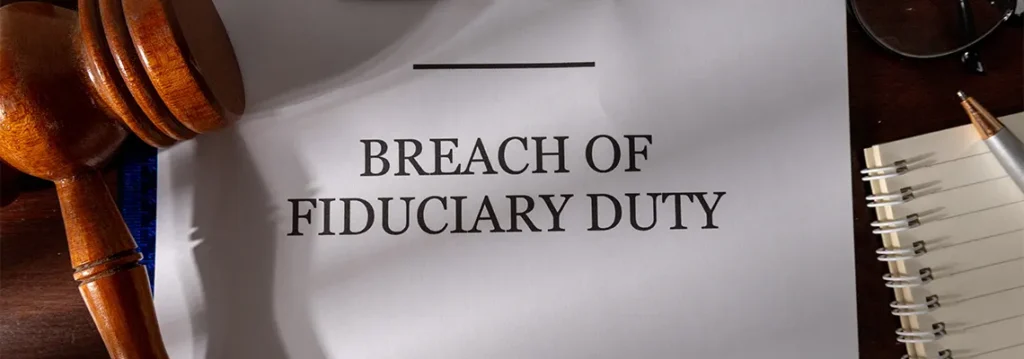If you’ve recently lost a loved one who didn’t leave behind a will, you’re probably asking: What are the required proofs for intestate succession in Texas probate? This question isn’t just legal—it’s personal. It arises during one of life’s most emotional moments and yet requires quick, technical action. The stakes are high. Without the proper documentation, rightful heirs can be denied what they’re legally entitled to, or the estate could be tied up in court for months—or worse, years.
In this guide, we’ll walk through the key proofs for intestate succession in Texas probate, explaining what they are, how to prepare them, and how they can shape the outcome of an estate case. We’ll explore real-life scenarios, common mistakes, and strategic insights to help you navigate this complicated but critical process.

What Is Intestate Succession in Texas?
Before we dig into the proofs for intestate succession in Texas probate, let’s lay the groundwork. Intestate succession occurs when a person dies without a valid will. When that happens, Texas law determines how their assets are distributed. These rules are laid out in the Texas Estates Code and follow a clear hierarchy: spouses, children, parents, siblings, and beyond.
But just because the rules are clear doesn’t mean the process is simple. To prove your relationship to the decedent—and claim your share of the estate—you’ll need to provide specific legal documentation. That’s where “proofs” come into play.
Real-World Example: The Case of Uncle Joe’s Farm
Let’s say “Uncle Joe” passed away in rural Texas without a will. He owned 25 acres of farmland, no spouse, and no kids. Joe’s two nephews believe they are next in line under Texas intestate succession laws.
Here’s the problem: the probate court doesn’t just take people at their word. The nephews have to prove:
- Joe died without a will
- They are his legal heirs
- No closer relatives exist
- The value and type of property in the estate
Without these proofs for intestate succession in Texas probate, the court might delay proceedings or even distribute the property to the wrong party.
The First and Most Crucial Proof: Proof of Death Without a Will
The foundation of any intestate probate case in Texas is proof that the decedent died without a valid will. This is typically handled by filing an Application to Determine Heirship and a death certificate, but that’s just the beginning.
Key Documents to Submit:
- Certified copy of the death certificate
- Sworn statements from family or other individuals with knowledge of the decedent’s life
- Affidavit of Heirship (if applicable)

These documents help the court confirm the decedent’s status and verify that no valid will exists. If a will is suspected but not located, the judge may delay distribution until all possibilities have been exhausted.
Proving Heirship: Who Are the Legal Heirs?
Once the court is convinced that no valid will exists, the next set of proofs for intestate succession in Texas probate involves establishing the rightful heirs. This part can get complicated—especially in blended families, second marriages, or situations involving adopted children or estranged relatives.
Commonly Required Proofs for Heirship:
- Birth certificates to establish parent-child relationships
- Marriage certificates to verify spousal status
- Divorce decrees or separation documents (if relevant)
- DNA test results, in rare or contested cases
- Family tree or genealogical affidavits, when heirs are distant relatives
All these proofs help the court apply Texas’s intestacy laws properly. The closer your relationship to the decedent, the stronger your legal claim—but only if you can document it.
The Role of Affidavits of Heirship in Texas Probate
When estates are small or straightforward, Texas allows the use of an Affidavit of Heirship to avoid formal probate. This document must be sworn and signed by two disinterested witnesses (people who aren’t inheriting anything).
What the Affidavit Must Include:
- The decedent’s full name and date of death
- A statement confirming the decedent died without a will
- A list of known heirs and their relationship to the decedent
- Statements confirming no debts or that debts have been resolved
While an affidavit of heirship is not accepted for all probate cases—particularly those involving real estate—it can serve as an important supporting proof when initiating intestate proceedings.
Inventory, Appraisement, and List of Claims
Part of preparing the court for intestate probate includes listing out the estate’s assets and debts. This is known as an Inventory, Appraisement, and List of Claims, and it’s one of the often-overlooked proofs for intestate succession in Texas probate.
Required Details:
- Allreal estate holdings (including deeds and tax records)
- Financial accounts (bank statements, retirement plans, etc.)
- Personal property with significant value (vehicles, jewelry, equipment)
- Outstanding debts (credit cards, mortgages, medical bills)
Accurate inventory is vital. Without it, the court can’t approve a fair distribution of assets. Worse, heirs may be personally liable if debts are missed.
Proving the Absence of Other Heirs
This proof is often the hardest, especially in cases involving long-lost siblings, children from previous relationships, or distant cousins. Still, it’s a critical requirement—especially if you’re asserting that you are the only heir.
How to Prove This:
- Sworn affidavits from family members
- Genealogical research or professional family tree reports
- Notices sent to possible heirs or publication in a local newspaper (required in some counties)
- Affidavit of Due Diligence showing efforts to locate missing heirs
Texas probate courts will not finalize heirship if there’s doubt about other potential heirs. These additional proofs help close the loop.
Court-Appointed Attorney Ad Litem: What to Expect
In contested or unclear cases, Texas probate courts often appoint an attorney ad litem to represent unknown or missing heirs. If you’re filing an application to determine heirship, this attorney will review all your submitted proofs and may request additional information or interviews.
Their goal is to ensure that no potential heir is left out and that all required documents are complete and accurate. While this can slow the process, it also protects your claim by reinforcing its validity in court.
Formal Testimony in Court
If the estate is large, involves real property, or there’s any dispute, the court may require formal testimony to validate the proofs for intestate succession in Texas probate. This process is often more formal than people expect and requires proper preparation with your legal representative.
You or another knowledgeable family member may need to testify under oath about:
- The decedent’s marital history
- The existence or non-existence of children
- Relationships between potential heirs
- Previous wills or trust documents (even if revoked)

This testimony becomes part of the court record and supports the legal findings of heirship. It’s crucial that any statements made match the written proofs you’ve already submitted. Consistency between verbal and written evidence can speed up approval and avoid unnecessary complications.
What If Heirs Are in Conflict?
Heirship disputes can complicate the proof process. When siblings argue over who inherits the house or whether an unknown child should be included, the court may pause proceedings until the issue is resolved. These disputes often lead to delays, additional costs, and strained relationships.
How to Handle Disputes:
- Try mediation to settle disagreements before formal hearings
- Present objective documentation, like paternity test results or legal documents
- Hire an experienced probate attorney to help assert your position and streamline the process
Keep in mind: the more thorough and well-prepared your proofs are, the harder it is for another heir to challenge your claim. The clearer the record, the faster and more fairly the estate can be resolved by the probate judge.
Essential Tips for Gathering Proofs in Texas Intestate Succession
Here are some expert tips that can make a big difference:
- Start early: Don’t wait for the court to request documents. Begin compiling proofs immediately after death. Time is critical, especially when assets like real estate need maintenance or have pending tax bills.
- Use disinterested witnesses: When filing affidavits, make sure witnesses are not listed heirs. Their objectivity adds weight to the document and avoids any appearance of bias.
- Double-check names and dates: Small errors (like spelling or mismatched birthdates) can create major delays. Even minor inconsistencies can force additional court hearings or amendments to filed documents.
- Keep communication open: Update all heirs about the process. This reduces suspicion and conflict. Transparent communication often prevents misunderstandings that can turn into legal disputes.
- Create a binder: Organize all documents in physical and digital formats to present to the court or your attorney. Staying organized can help your legal team work efficiently and make your case stronger.

Final Thoughts: Preparation Is Everything
Successfully proving your right to inherit under Texas intestate succession laws isn’t just about being related to the deceased—it’s about proving it in a court of law. And those proofs for intestate succession in Texas probate must be thorough, organized, and legally sound.
Whether you’re a child, sibling, or distant cousin, the documentation you provide will shape the outcome of the estate. With the right strategy, support, and preparation, you can protect your loved one’s legacy and ensure that assets are distributed justly—even in the absence of a will.








